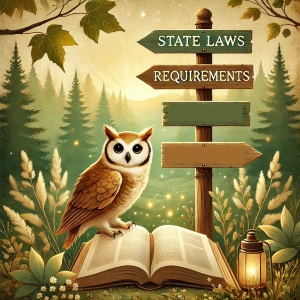
Homeschooling is legal in all 50 states, but the homeschool laws and requirements vary significantly depending on where you live. Understanding your state’s homeschooling laws is crucial to ensure compliance and a smooth homeschooling experience. Here’s a guide to help you navigate state requirements and confidently homeschool within the law.
Why It’s Important to Know Your State’s Homeschool Laws
Each state has different regulations, including registration, record-keeping, testing, and curriculum requirements. Some states have minimal oversight, while others have detailed requirements. Knowing your state’s laws will help you:
- Ensure legal compliance and avoid potential issues.
- Understand what paperwork, assessments, or reports you need to submit.
- Find available resources and support networks specific to your state.
Categories of Homeschooling Laws by State
Homeschool laws generally fall into three categories:
- Low-Regulation States: Minimal requirements, often just notifying the state of your intent to homeschool.
- Moderate-Regulation States: Require periodic assessments, attendance records, or portfolio reviews.
- High-Regulation States: May require standardized testing, curriculum approval, or frequent reporting.
Common Legal Requirements for Homeschoolers
While each state is different, here are some common legal requirements:
- Notice of Intent: Some states require parents to file a notice of intent to homeschool with their local school district.
- Record-Keeping: You may need to maintain attendance records, progress reports, or portfolios of student work.
- Testing & Assessments: Some states require standardized testing or periodic evaluations by a certified teacher.
- Instructional Requirements: A few states mandate specific subjects or a minimum number of instructional hours per year.
How to Stay Updated on Homeschool Laws
Homeschool laws can change, so it’s essential to stay informed:
- Check your state’s Department of Education website.
- Join local homeschooling groups and online forums.
- Connect with state homeschooling associations that provide legal updates and resources.
Finding Support & Legal Assistance
Many national organizations, such as the Homeschool Legal Defense Association (HSLDA), provide legal guidance and advocacy for homeschooling families. State-specific homeschool associations also offer resources, legal advice, and community support.
State-by-State Homeschool Law Guide
Below is a list of homeschooling laws by state. Click on your state for more details:
Final Thoughts
Navigating your state’s homeschool laws doesn’t have to be complicated. By understanding the requirements, keeping records, and staying connected with local homeschooling communities, you can confidently provide your child with a legal and fulfilling education.
Would you like help finding specific legal resources for your state? Let me know in the comments!

Leave a Reply